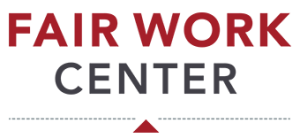“Good afternoon Chairman Himes, Ranking Member Steil, and members of the Committee. My name is Danielle Alvarado. I’m the Executive Director of Working Washington & Fair Work Center, a statewide organization of low-wage and historically excluded workers. We have led the campaigns to pass and enforce many of the transformative victories mentioned today.
Seattle’s economy is strong, not in spite of our labor standards, but because of them—and our successes here provide a roadmap for the rest of the country.
There are four key lessons that I want to highlight:
FIRST, LOCAL LEADERSHIP ON WORKPLACE PROTECTIONS MATTERS, ESPECIALLY FOR HISTORICALLY EXCLUDED WORKERS
The success of the Fight for Fifteen meant 1 in 4 Seattle workers got a raise — making it one of the largest economic boosts for workers in recent American history. That’s more than 100,000 people with more in their pockets to pay bills, save up for emergencies, and spend in the local economy.
Today, our Seattle minimum wage is $10 higher than the federal, and the movement that started here has spread nationwide. Over the past decade, we’ve increased wages by more than $150 billion dollars for 26 million workers across the country.
Our victories in Washington aren’t just about what we’ve won, but who has benefitted. We have taken on some of the most deeply entrenched and racist labor standards exclusions in federal law. In Seattle, nannies and house cleaners passed the first municipal Domestic Workers Bill of Rights to establish basic protections like minimum pay and breaks. And this year, for the first time, Washington farmworkers are earning overtime. These victories are chipping away at an economic system that for too long has trapped workers of color at the bottom.
SECOND, LOCAL GOVERNMENT CAN QUICKLY PIVOT, ENSURING WORKERS ARE NOT LEFT BEHIND
The power of local leadership is clear in moments of crisis. As the pandemic hit frontline workers hard, we won first-in-the-nation emergency hazard pay and sick time rights for gig workers. The City also moved swiftly to establish a relief fund providing additional help to nearly 10,000 residents. These emergency measures were critical to keeping Seattle workers safe, healthy, and able to make ends meet.
And these crisis responses often pave the way for long term solutions. That’s why we continued to organize, which led the City Council to unanimously pass PayUp, our permanent gig worker ordinance, this May.
THIRD, STRONG LABOR PROTECTIONS REQUIRE INVESTING IN ENFORCEMENT
We know our rights are only real when they’re enforced—and when that doesn’t happen, it’s people of color, Black workers, immigrants, and other historically excluded groups who are more likely to experience labor standards violations.
That’s why Seattle established the Office of Labor Standards (OLS) to build on the work of our state agency. To date, OLS has returned nearly 25 million dollars to over 40,000 Seattle workers. OLS enforces strategically. By focusing resources on priority issues and industries, it is able to recover more money for workers, close the enforcement gap, and hold bad actor employers accountable.
Most critically, OLS has invested millions of dollars in partnerships with grassroots organizations like ours. When we fund community based outreach and enforcement, we break down the isolation and fear of retaliation that keeps so many workers – particularly the most marginalized – from coming forward. By combining community partnerships and strategic enforcement, we are able to ensure that our progressive labor standards really mean something to the workers who fought for them and need them most.
LAST, STRONG LABOR STANDARDS REQUIRE STRONG WORKER ORGANIZING
We are proud of our partners in local government. And, it’s critical to understand that the progress we’ve made in Washington would not have happened without the leadership of workers.
Time and time again, we’ve seen that workers know better than anyone what needs to change about our economy. To make sure worker voices remain front-and-center, we’ve created strong coalitions of community organizations, labor unions, and worker centers like ours. By coming together to win new protections at the state and local level, we’re responding to the modern economy by building an inclusive labor movement that leaves nobody behind.
OUR PRIORITIES FOR THE FUTURE
While we’ve achieved powerful victories in the Seattle area, there is still more work to be done. Washington has no state income tax, which means too many workers struggle while the rich get richer.
There’s an urgent need to strengthen federal and state labor standards and bring them up to speed with Seattle’s gains. Our safety net has unacceptable shortcomings: we need universal access to unemployment, paid leave, and robust health and safety protections that reflect the realities of climate change. We need deeper investments in labor standards enforcement to make sure rights on paper are real in every corner of the state.
No matter where we live, we all deserve, fairly paid, dignified work. Seattle’s workers have shown it can be done. We are ready to continue leading the way.”








